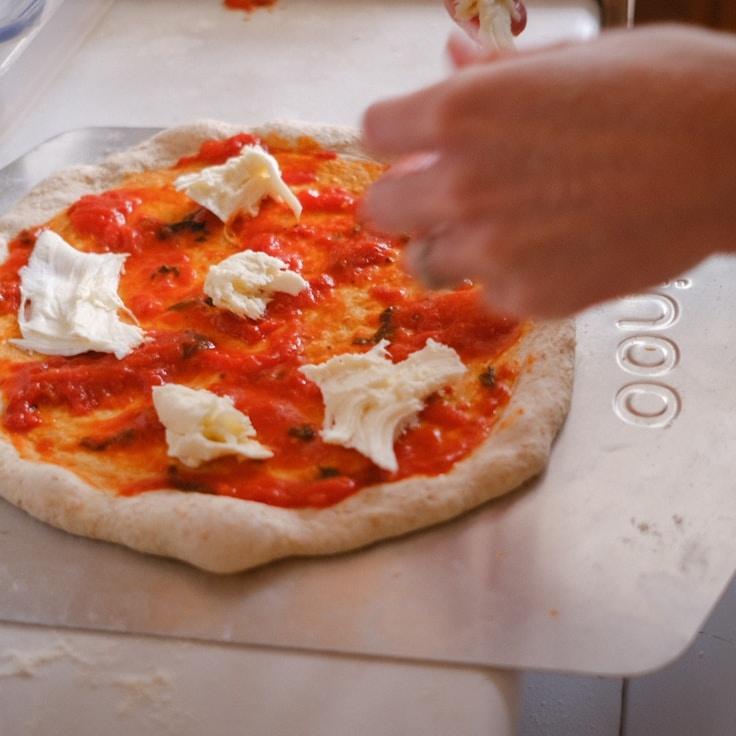At StoneFootway, our philosophy is that outstanding pizza is built on outstanding dough. With over thirty years spent refining our recipe, we're thrilled to divulge a few of our trade secrets. Though our precise formula remains a hushed family heirloom, these guidelines will assist you in concocting pizzeria-caliber pizza dough within your own kitchen.
Importance of Flour
The cornerstone of exceptional pizza dough is premium flour. We urge the use of 00 flour, an ultra-fine Italian variety with a modest protein percentage (about 12%), fostering an ideal mix of durability and delicacy in the dough. If 00 flour is unavailable, bread flour makes a serviceable alternative, albeit with a marginally altered consistency.
Water's Heat and Moisture Content
Your water's temperature is critical as it dictates the fermentation duration and affects the dough's texture. Colder water at about 45°F (7°C) is preferable for a slow fermentation that enhances flavor, whereas warmer water at around 85°F (29°C) quickens the process. The dough's hydration level, or water-to-flour ratio, is optimum between 60-70% for a standard home oven.
A Pinch of Yeast for Prolonged Fermentation
To achieve a dough enriched with taste, a minimal amount of yeast is key coupled with an extended fermentation period. We use a mere 0.2% fresh yeast based on the flour's weight, allowing our dough to ferment for a 24-48 hours stretch. Such an unhurried process cultivates intricate flavors and results in more easily digestible dough.
Role of Salt Beyond Seasoning
Salt is crucial not only for flavoring the dough but also for reinforcing gluten structure and moderating fermentation. Fine sea salt is suggested at a 2.5-3% ratio to the flour's weight. Ensure that the salt is combined after the flour and water have started to amalgamate to avoid direct yeast contact.
Fermentation: A Craft
Following blending, let your dough undergo bulk fermentation at ambient temperature for two hours, then proceed to divide it into separate dough balls. Encase these in lidded containers and refrigerate them for 24-72 hours. It's within this cold fermentation phase that the enzymes decompose starches into simpler sugars, thus enriching the flavor and enabling the crust's signature golden hue.
Gentle Dough Handling
Before crafting your pizza, allow the dough to adjust to room temperature for 1-2 hours. When shaping your pizza base, it's crucial to lightly handle the dough, maintaining the air pockets formed during fermentation. Rather than rolling, gentle pressing and stretching with your fingertips is the way to go.
Concluding Stage: Cooking Heat
While we utilize wood-fired ovens that can attain an intense 850°F (454°C), domestic ovens usually reach up to 550°F (288°C). To mimic such conditions, use a baking stone or steel that has been preheated for at least one hour, allowing for the necessary powerful bottom heat to procure a crunchy crust with a light and airy inside.
Perfecting pizza dough is an evolving skill that offers new insights with each preparation. We encourage jotting down observations, tweaking factors, and unearthing what yields the best results in your home's cooking space.
Should you wish to witness our dough creation process firsthand, consider attending our monthly pizza classes where Chef Leonardo showcases these techniques meticulously. Peek at our events schedule for upcoming sessions!

